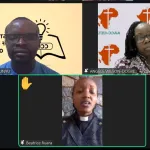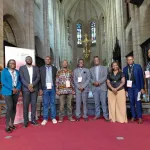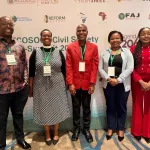Balancing Faith and Governance.
In a world where the state and church serve as the bedrock of society, the balance between structural governance and spiritual guidance is pivotal. Today, the All Africa Conference of Churches (AACC) kicked off its 5th Annual Theological Symposium, focusing on government regulation of churches and religious activities.
The symposium, which runs from October 29 to November 1, with around 85 participants, including church leaders, theologians, and representatives from various sectors, addresses the increasing incidences of misleading theologies that have had devastating impacts across the continent.
Notable cases include the tragic Shakahola massacre in Kenya, where hundreds of lives were lost, and incidents in Rwanda and Zambia, where religious leaders exploited their congregants, leading to manipulation, harmful activities, deaths, and loss of human dignity.
On behalf of the General Secretary, Rev. Dr. Fidon Mwombeki, Fr. Dr. Njoroge officially opened the symposium by highlighting the key questions surrounding government regulation of churches and religious institutions. Key topics to be covered include the role of government in such regulations, the specific aspects of religious practices that may require oversight and the potential tensions that could arise between church and state if new laws or policies are enacted.
In his keynote address, Rev. Dr. Mwombeki, the AACC General Secretary, emphasized the necessity of a harmonious relationship between the church and the state. "Religion is an integral part of life, culture, and society, making it impossible to exist outside the government's regulatory framework. It is essential to safeguard the rights of believers and non-believers and to mediate between different faiths to ensure order and the well-being of all," he stated.
As the symposium progresses, participants will delve deeper into the complexities of this relationship, exploring the role of government in religious practices, the tension between state and church, and strategies to mitigate conflicts for the public good and freedom of worship as guaranteed in many constitutions across the continent.
In Photo - [A group photo of the participants during the symposium]




